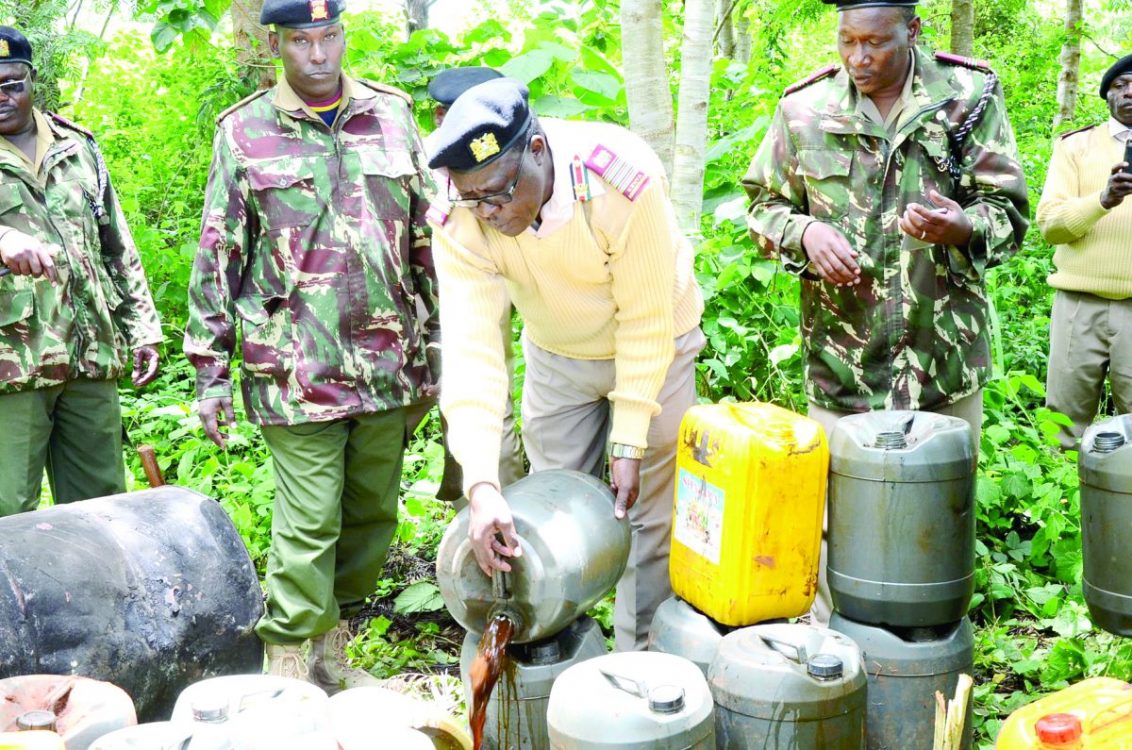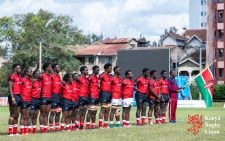No! Don’t touch our muratina, elders tell State

The government has found itself on a collision path with elders and opinion shapers in the Mt Kenya region after classifying muratina as an illicit brew in the ongoing crackdown on such drinks.
So hostile is the situation on the ground that some elders, lobby groups and individuals have moved to court to stop the government’s efforts.
Muratina plays an important role in the social and cultural traditions of the Kikuyu community.
Made from the fruit of muratina (sausage tree), sugar cane juice, honey and water, the drink is used in various social functions such as weddings, birth celebrations, circumcision and other special occasions.
Traditionally, muratina was never drunk without a purpose. It was commonly brewed for special occasions and communal ceremonies.
Young men and women were not allowed to partake of the drink until they reached the appropriate age, which was when they were marrying off their eldest child.
One was only allowed to taste muratina on a few occasions such as during circumcision ceremonies.
The drink is also used in blessing rituals and during the ceremony, the elder leading the ceremony pours some of it to the ground in honour of the ancestors, spitting some on his chest and hands to bless himself and the labour of his hands, before uttering words of blessings.
It is believed muratina connects three worlds the unborn, the living and the dead.
It is no surprise then that a decision by the government to ban its brewing and use has been met with resistance from traditionalists, opinion leaders and elders.
Local authorities have been destroying ingredients and arresting persons found brewing the traditional drink, ostensibly in the fight against illicit brews.
While the crackdown by the government has been opposed, other elders feel the permission to brew traditional drinks had been abused by rogue brewers to sneak in outlawed alcohol.
Kikuyu Council of Elders patron Kung’u Muigai says that while muratina is part and parcel of special community occasions, elders must inform chiefs and other administration officers when they intend to brew it.
“We have agreed that the special drinks cannot be banned as they are key ingredients during special occasions held by the Kikuyu community. That, however, does not allow elders to engage in selling illicit brews. The government has allowed us to have muratina but it has to be brewed with the consent of local authorities. Those who break the rules, we will not support them as a council,” said Muigai who is also the chairperson of the Kenya Cultural Centre Council board.
Other elders say banning the drink would be tantamount to killing the Kikuyu culture.
“The government should distinguish between illicit brews and muratina. Without muratina, it will mean the Kikuyu will not be holding ceremonies anymore. Chiefs know what is muratina and what is chang’aa and as such, brewers of muratina should not be harassed,” Jacob Mwangi, an elder said.
Political leaders declined to comment on the matter, arguing that supporting the elders could attract hostility from Christians who are opposed to the drink.
They stated that while the church is against alcohol, the same has been used over the years even during dowry ceremonies that even church members attend.
“I cannot comment on this as the church will fight me. While I understand that muratina is traditional and is used on special occasions, saying this on camera will attract hostility among some churches that are opposed to it and who are also my supporters. That one I leave to the government to decide,” an MP who sought anonymity told People Daily yesterday.
Church members attend.
“I cannot comment on this as the church will fight me. While I understand that muratina is traditional and is used on special occasions, saying this on camera will attract hostility among some churches that are opposed to it and who are also my supporters. That one I leave to the government to decide,” an MP who sought anonymity told People Daily yesterday.
Life Apostolic Church in Kiganjo, Thika, said that while muratina used to be good in the past, it had been abused by alcohol manufacturers.
“The brewers now use all manner of things to make the drink which no longer serves the purposes of blessing and symbolism. It should be banned and declared an outlawed substance as it has killed many,” said Kilango.
To oppose the ban, some elders have moved to court in protest against what they describe as a violation of their constitutional right to practice their culture, including holding ceremonies.
The petition before Kiambu High Court judge Peter Mulwa, which was filed by Ndeiya traditional brewers from Kiambu County, seeks to find redress for the alleged violation of the community’s rights.
The petitioners cite Articles 22, 23, 24, 40, 50, and 260 of the Constitution and Fair Administration Act, Protection of Rights and Fundamental Freedoms and Practice and Procedure rules.
According to Ngumi Gitau, a petitioner, local authorities have been harassing elders who brew muratina for ceremonies saying that while they have been on the frontline in fighting illicit brews, the court should give an interpretation on whether the traditional drink is illicit or not.
They claim that even when Deputy President Rigathi Gachagua declared war on outlawed substances, he did not cite muratina.
Ndung’u Kuria, the elder’s lawyer, revealed that the elders were in court under Article 11 of the Constitution which speaks about matters of culture, the foundation of the State which cannot suppress the rights to celebrate culture.
“This is a cultural thing which does not need the authority of the government or anyone in administration as it is our basis and no one should interfere. As we speak, provincial administration officers have categorized muratina as an illicit brew and people are being harassed and taken to court. We are happy the court gave us a close hearing date,” said Kuria.
Judge Mulwa slated the matter to be mentioned on July 18 for further directions.
In March 2018, a principal magistrate recognized muratina as a Kikuyu traditional drink, saying the Constitution has the mandate to protect the cultures of all communities and no law should infringe on cultural practices.












